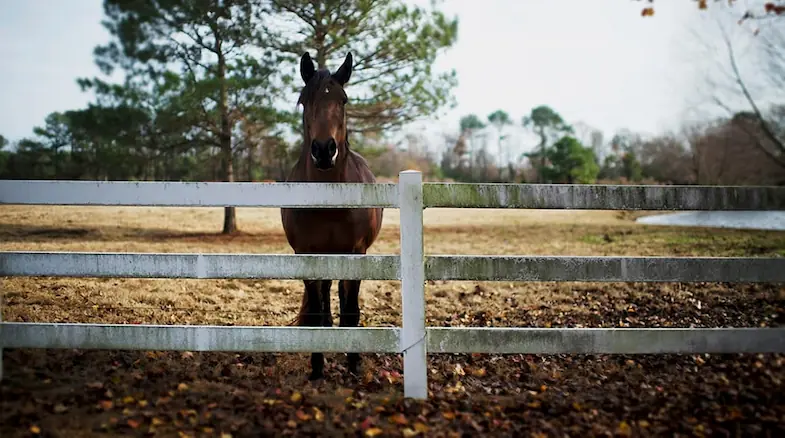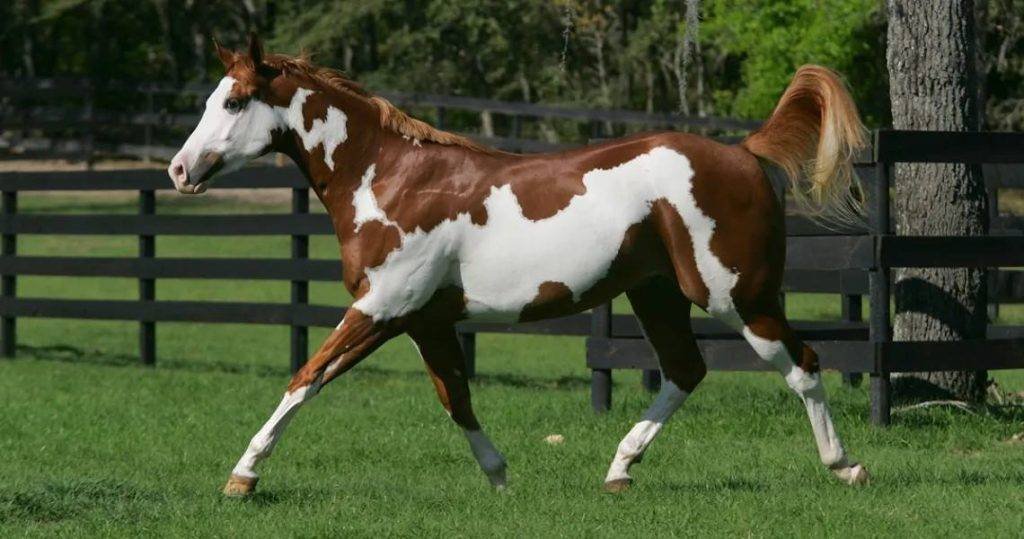When it comes to housing horses, one of the most important decisions you’ll need to make is choosing the right type of fence.
A good fence keeps your horses safe, prevents them from wandering off, and ensures the safety of your property. But with so many fencing options available, how do you decide which one is best for you? In this article, we’ll explore the pros and cons of different horse fencing materials to help you make an informed decision.
1. Wooden Fencing
Pros:
- Aesthetic Appeal: Wooden fences are traditional and can enhance the look of your property. They provide a classic, natural appearance that blends well with most landscapes.
- Sturdy and Strong: Wood is durable and can handle the force of a horse’s impact, making it a solid choice for containing horses.
- Customizable: Wooden fences can be easily customized in height, design, and style to suit your preferences.
Cons:
- Maintenance: Wooden fences require regular maintenance. They need to be stained or painted to prevent rot, and individual boards may need to be replaced after a few years.
- Cost: Wood fencing can be expensive, especially when considering installation and long-term maintenance.
- Safety Concerns: If horses chew on the wood or if the wood splinters, there can be potential safety risks for the animals.
2. Electric Fencing
Pros:
- Effective Deterrent: Electric fencing provides an excellent deterrent for horses. It is a great way to train your horses to stay within the boundaries because they quickly learn not to touch the wire.
- Affordable: Compared to wooden or metal fencing, electric fencing is usually much more affordable to install.
- Flexible and Easy to Install: Electric fences can be installed quickly and in various configurations. They are also portable, which can be helpful if you need to adjust the layout of your horse enclosure.
Cons:
- Maintenance: Electric fences require ongoing maintenance. The wires need to be checked for power, and any breaks or malfunctions need to be repaired promptly.
- Vulnerable to Weather: Extreme weather conditions can affect the effectiveness of electric fencing. Heavy rain, snow, or high winds can cause wires to malfunction or break.
- Safety Concerns: While electric fences are generally safe, horses can sometimes get tangled in the wires, or a malfunction can lead to a stronger shock than intended.
3. Vinyl or PVC Fencing
Pros:
- Low Maintenance: Vinyl or PVC fencing requires little maintenance. It doesn’t rot, rust, or require painting, making it a long-lasting option.
- Durable and Safe: Vinyl fences are tough and safe for horses. They don’t splinter like wood, and there’s no risk of sharp edges or rusting like metal.
- Aesthetic Appeal: Vinyl fences have a clean, modern look that can enhance the appearance of your property.
Cons:
- Cost: Vinyl or PVC fencing tends to be more expensive upfront than some other options, especially when it comes to high-quality brands.
- Potential for Cracking: While vinyl is generally durable, it can become brittle over time if exposed to harsh weather, particularly extreme cold. This could lead to cracks and potential safety issues.
- Limited Customization: Unlike wood, vinyl fencing offers less flexibility in terms of customization, and it may not blend as seamlessly into natural environments.
4. Wire Fencing
Pros:
- Cost-Effective: Wire fencing is often one of the most affordable options for horse enclosures. It’s a good choice for large properties or farms.
- Durability: Wire fencing, particularly high-tensile wire, is very durable and can withstand a lot of force. It’s less likely to break under pressure than some other materials.
- Easy to Install: Wire fencing is relatively easy to install and can be done by yourself, depending on the setup.
Cons:
- Safety Concerns: Horses can sometimes get tangled in wire fences, especially if the wire is not properly maintained. If the wire isn’t highly visible, horses can run into it, which could lead to injury.
- Aesthetics: Wire fencing is not as visually appealing as wood or vinyl. It can sometimes appear harsh or industrial.
- Maintenance: Wire fences, especially those with barbed wire or smaller gauges, need regular checks for sagging or rusting. Over time, the wires can stretch or become loose.
5. Metal Pipe or Tube Fencing
Pros:
- Very Durable: Metal pipe fencing is incredibly sturdy and can withstand even the strongest horses. It’s unlikely to get damaged easily, even if a horse leans against it or pushes on it.
- Low Maintenance: Metal fences require very little maintenance and don’t need painting or treatment like wood.
- High Visibility: Metal pipe fencing is easy for horses to see, reducing the risk of injury from running into the fence.
Cons:
- High Cost: Metal pipe fencing is usually one of the more expensive fencing options, both in terms of materials and installation.
- Hard to Customize: While functional, metal pipe fences can be less customizable in terms of style and design compared to wood or vinyl fences.
- Potential for Injury: While rare, if a horse gets tangled in metal pipe fencing or pushes against it too hard, there’s a risk of injury from sharp edges.
6. Barbed Wire Fencing
Pros:
- Cost-Effective: Barbed wire is one of the least expensive fencing options, making it an attractive choice for those on a budget.
- Durability: Barbed wire can last for many years without needing to be replaced or repaired.
- Effective Boundary: Horses typically avoid barbed wire because of its sharpness, making it an effective deterrent.
Cons:
- Safety Risks: The primary concern with barbed wire is the potential for injury. Horses that get tangled in it or run into it could experience serious cuts or abrasions.
- Difficult to See: Barbed wire can be difficult for horses to see, which increases the likelihood of them running into it.
- Maintenance: Barbed wire fences may require frequent repairs, especially if they become loose or damaged from weather conditions or horse activity.
Which Option Is Best For You?
The best fencing option for you depends on your budget, the number of horses you have, the type of terrain, and how much maintenance you’re willing to do. Here’s a quick guide to help you choose:
- If you need an affordable and easy-to-install option: Electric fencing or wire fencing might be the best choice.
- If you prefer durability and low maintenance: Vinyl, PVC, or metal pipe fencing could be a great fit.
- If aesthetics are important to you: Wooden or vinyl fencing can provide a more attractive, traditional look.
- If safety is your priority: Metal pipe or high-quality wire fencing with proper maintenance may be the safest for your horses.
Each type of fencing has its pros and cons, but with the right choice, you can keep your horses safe and comfortable while also maintaining the beauty and functionality of your property




